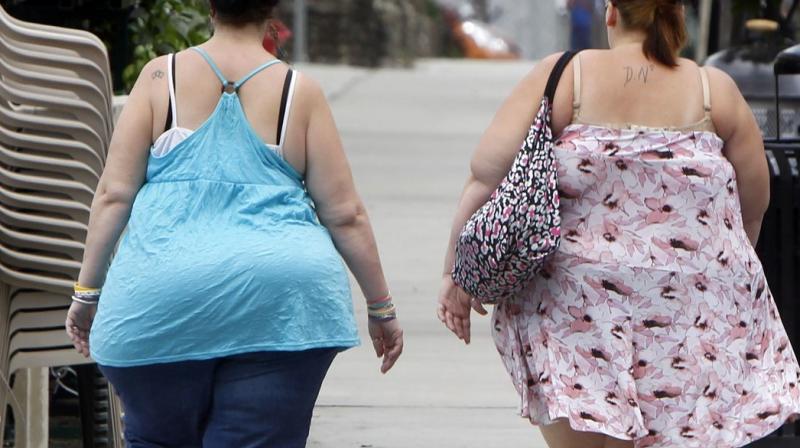Fewer fat adults are trying to lose weight: study

A growing share of overweight and obese Americans are not trying to shed excess pounds, and researchers think it's at least in part because more people see being fat as socially acceptable, if not healthy.
Over roughly the past three decades, the proportion of adults who are overweight and obese has surged from 53 percent to 66 percent, researchers report in JAMA. Over that same period, the proportion of heavy adults trying to lose weight dropped from 56 percent to 49 percent.
Losing weight is hard, and keeping it off is even harder. This may explain at least some of the waning national interest in weight loss, said senior study author Dr. Jian Zhang, a public health researcher at Georgia Southern University in Statesboro.
"It's hard to drop pounds," Zhang said by email. "It's a life-long commitment and painful, and many of us have tried and failed, tried and failed, and finally failed to try anymore." A lot of heavier adults are probably also seeing so many other overweight and obese people that they feel comfortable at their current size and don't feel social pressure to slim down.
"This might be explained, at least partially, by increasing evidence that adults who are overweight may live as long as and sometimes even longer than normal weight adults," Zhang said.
The decline in weight-loss efforts occurred mostly among adults who were overweight but not yet obese, Zhang added. For the study, researchers analyzed data from a nationally representative health survey for three time periods: 1988 to 1994, 1999 to 2004 and 2009 to 2014.
Among other things, the survey asked overweight and obese adults if they had tried to lose weight during the past 12 months.
Black women experienced the steepest decline in weight loss efforts from the first study period to the last. In the late 1980s and early 90s, 66 percent of overweight and obese black women said they were trying to lose weight, but by the final study period this dropped to 55 percent.
At the same time, the proportion of obese and overweight black women surged much more than for white women, the study also found. By the end of the final study period, 79 percent of black women were overweight or obese, compared with 59 percent of white women.
Limitations of the study include its reliance on survey participants to accurately recall and report their weight and height to allow researchers to calculate whether they might be overweight or obese, the authors note.
It's also possible to see the results in a positive light, said Susan Roberts, a nutrition researcher at Tufts University in Boston who wasn't involved in the study. That's because despite the challenges, millions of Americans are still trying to lose weight.
"People haven't given up," Roberts said by email.
For more of them to succeed, however, we may need to rethink what weight management means, Roberts added. Things doctors have recommended to overweight patients for years like logging food in a diary, using willpower to resist overeating and getting 10,000 steps a day haven't worked.
"It doesn't address the basic neurobiology of how our brains think about food," Roberts added. "We can't use willpower to think ourselves out of hunger because willpower doesn't reach the unconscious brain."
The bathroom scale, however, is a simple tool that can work - especially for people who are overweight but not yet obese.
"I think a really important strategy is catching it quick," Roberts said. "Buying a bathroom scale if you don’t have one and weighing yourself regularly is so important because it's not that hard to lose five pounds with almost any diet method, and if you have a line in the sand that if you go over it you eat carefully for a couple of weeks you can make a big difference."

